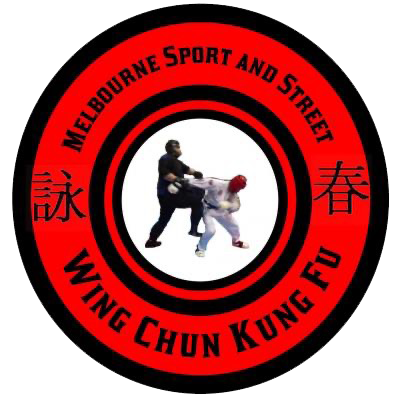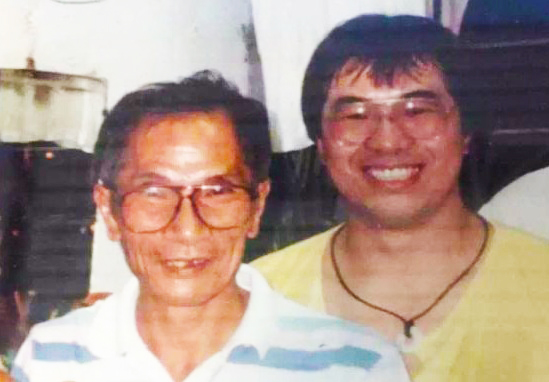Master the Art of Wing Chun with Ip Chun, the Respected Grandmaster and Teacher
By Maurice Novoa a master under the Yuen Kay Shan, Ip Man and Pan Nam lineages.
Introduction
Ip Chun, also known as Yip Chun or Yip Jun, is a famous Chinese martial artist and actor. Born on July 10, 1924, in Foshan, Guangdong. He is the elder son of Ip Man, the teacher of the legendary Bruce Lee. He was instrumental in the promotion of Wing Chun though his role on the first Ip Man movie and also through the creation of the Ip Man Athletic association.
Early Life and Education
Ip Chun grew up in Foshan, where he received a traditional Chinese education. It included studying history, philosophy, poetry, traditional music, and Buddhism. In 1949, after the Communist Party established the People’s Republic of China on the mainland. His father left for Hong Kong while his sons remained in Foshan to continue his university studies. In 1962, because of the Cultural Revolution, Ip Chun and his brother had to leave Foshan. They would both reunite with their father in Hong Kong.
Professional Career and Teaching Accomplishments
Ip Chun worked as an accountant and a newspaper reporter during the day. He practiced Wing Chun in the evenings under his father’s guidance. In 1965, he joined the Ving Tsun Athletic Association. Ultimately became one of its founders when they formally established it in 1968. For the first three years, he served as the treasurer and later became the chairman of the association.
In 1967, he began teaching Wing Chun in Hong Kong, some of his first students still train with him today. His father entrusted the film footage of his Siu Nim Tao, Chum Kiu, and Muk Yan Jong forms to his sons for posterity. In 2014, he selected as a nominee to represent the inheritance of Wing Chun-style kung fu. He has taught and held seminars in many cities including Australia, England, and the United States. Felix Loeng, a disciple of Ip, has been teaching in Adelaide, Australia, since 1974.
Filmography
Ip Chun has made several appearances in films, including a small role in the 1976 film Bruce Lee. The Man, The Myth as Bruce Lee’s Wing Chun Sifu (Ip Man). He also served as a consultant for Ip Man, a 2008 Hong Kong film about the life of his father. He made a special appearance as Leung Bik (son of Leung Jan) in The Legend is Born – Ip Man. Finally he made a cameo appearance in another Ip Man film, Ip Man: The Final Fight.
Awards and Achievements
Ip Chun has received numerous awards and recognition for his contributions to the world of martial arts. The Society of Martial Arts (U.K.) awarded him a Fellowship (FSMA), introducing the first degree program in martial arts worldwide. For his research in music, he received “The Person with the Most Potential in Chinese Art” award. He earned Best Male Supporting Role award at the Shanghai International Film Festival, they nominated him for Best New Actor.
Conclusion
Ip Chun has dedicated his life to promoting and preserving Wing Chun Kung Fu, gaining high respect as a teacher. He made significant contributions to the development of martial arts. He is a significant figure in martial arts history due to his teaching and film industry success.
Top 10 Questions about Ip Chun
He is a Chinese martial artist and grandmaster of Wing Chun. The martial art made famous by his father, Ip Man. He began learning the style from his father at a young age and has subsequently dedicated his life to the practice and promotion of the art.
He had a close and loving relationship with his father, Ip Man, who was one of the most famous and influential Wing Chun masters of the 20th century. Ip Man taught his son the the style and ultimately instilled in him a deep respect for its principles and values.
Some of his most notable accomplishments the style include founding the Ip Chun Wing Chun Academy in Hong Kong. Additionally he wrote several books on the art, and serving as a consultant on the Ip Man film series.
Ip Chun has contributed to the development and promotion of the style around the world by teaching the art to students from all walks of life. Correspondingly publishing books and instructional materials, and advocating for the art’s recognition and preservation.
Ip Chun has a unique perspective on the practice of the style, informed by his deep understanding of the art’s history, principles, and techniques. He emphasizes the importance of simplicity, directness, and efficiency in the style. Lastly emphasizing the importance of maintaining a clear mind and a calm demeanor in combat.
Ip Chun’s approach to teaching the style has evolved over the years as he has gained more experience and insight into the art. He emphasizes the importance of adapting to changing circumstances and tailoring the practice of the style to individual needs and abilities.
Ip Chun sees the style as a means of cultivating personal growth and development, as well as a tool for self-defense and protection. He emphasizes the importance of balance and harmony in life, and encourages his students to approach their training with an open mind and a compassionate heart.
Ip Chun’s teaching have ultimately influenced the broader Wing Chun community by emphasizing the practical applications of the art and the importance of adapting to changing circumstances. He has also emphasized the importance of respecting and preserving the traditional values and principles of the style.
Some of Ip Chun’s most famous students include Leung Ting, the founder of the International Wing Tsun Association, and Felix Leong, a prominent Wing Chun teacher and practitioner. These students have gone on to make significant contributions to the development and promotion of the style around the world.
Some of the challenges facing practitioners today firstly include the need to adapt to changing circumstances. Secondly to remain relevant in a rapidly changing world. Finally Ip Chun has addressed these challenges by emphasizing the importance of maintaining a clear and flexible mindset, and by advocating for the preservation of the traditional values and principles of the style.

